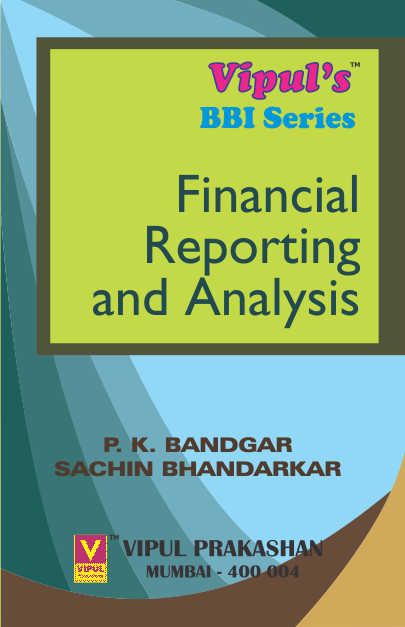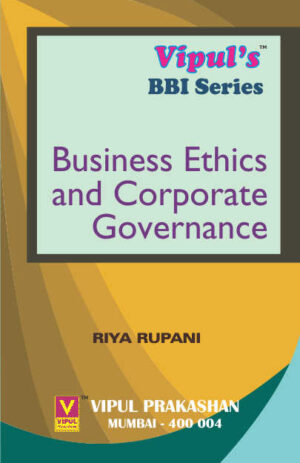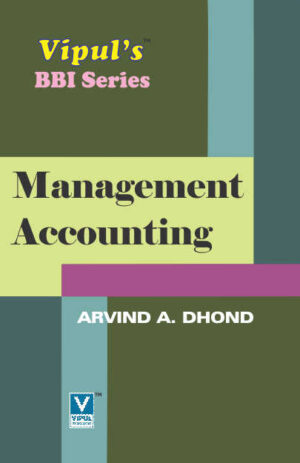Financial Reporting and Analysis
₹240.00
TYBBI — SEMESTER – V
Author: P. K. Bandgar
Sachin Bhandarkar
SIXTH REVISED EDITION 2024
Description
SYLLABUS
(1) Final Accounts of Banking Company:
Legal Provisions in Banking Regulation Act, 1949 Relating to Accounts.
Statutory Reserves including Cash Reserve and Statutory Liquidity Ratio.
Bills Purchase and Discounted, Rebate on Bill Discounted.
Final Accounts in Prescribed Form.
Non – performing Assets and Income from Non – performing Assets.
Classification of Advances: Standard, Sub – standard, Doubtful and Provisioning Requirement.
(2) Final Accounts of Insurance Company:
- Preparation and presentation of Corporate Final Accounts for Insurance Companies
- Final Accounts in accordance with Insurance Legislation.
- Study of Accounting Policies from Annual Reports of Listed Insurance Companies.
(3) Preparation of Final Accounts of Companies:
Relevant Provisions of Companies Act related to Preparation of Final Account (excluding cash flow statement)
Preparation of Financial Statements as per Companies Act. (excluding cash flow statement)
AS 1 in Relation to Final Accounts of Companies (Disclosure of Accounting Policies)
Adjustment for:
- Closing Stock
- Depreciation
- Outstanding expenses and income
- Prepaid expenses and Pre received income
- Proposed Dividend and Unclaimed Dividend
- Provision for Tax and Advance Tax
- Bill of exchange ( Endorsement, Honour, Dishonour)
- Capital Expenditure included in Revenue expenditure and vice versa e.g. purchase of furniture included in purchases
- Unrecorded Sales and Purchases
- Good sold on sale or return basis
- Managerial remuneration on Net Profit before tax
- Transfer to Reserves
- Bad debt and Provision for bad debts
- Calls in Arrears
- Loss by fire ( Partly and fully insured goods)
- Goods distributed as free samples.
- Any other adjustments as per the prevailing accounting standard.
(4) Cash Flow Analysis and Ethical Behaviour and Implications for Accountants:
Cash Flow Analysis as per AS-3 (Indirect Method only)
Ethical Behaviour and Implications for Accountants
Introduction, Meaning of ethical behavior
Financial Reports – Link between Law, Corporate Governance, Corporate Social Responsibility and Ethics.
Importance and Relevance of Ethical Behavior in Accounting Profession.
Implications of Ethical Values for the Principles Versus Rule Based Approaches to Accounting Standards
The Principal Based Approach and Ethics
The Accounting Standard Setting Process and Ethics
The IFAC Code of Ethics for Professional Accountants
Contents of Research Report in Ethical Practices
Implications of unethical behavior for Financial Reports
Company Codes of Ethics
The increasing role of Whistle – Blowing
Need to learn ethics.
(5) Introduction to IFRS:
IFRS 1: First Time Adoption of International Financial Reporting Standards, Objective, Scope, Definitions, First IFRS Financial Statements, Recognition and Measurement, Comparative Information, Explanation of Transition to IFRS, Reconciliations, Interim Financial Reports, Designation of Financial Assets or Financial Liabilities, Use of Fair Value as Deemed Cost, Use of Deemed Cost, Exceptions to Retrospective Application of other IFRS, Exemptions for Business Combination, Exemptions from other IFRS and Presentation and Disclosure.
IFRS 2: Share Based Payment – Objective, Scope, Definitions, Recognition, Equity Settled Share Based Payment Transactions, Transactions in which Services are Received, Treatment of Vesting Conditions, Expected Vesting Period, Determining the Fair Value of Equity Instruments granted, Modifications of terms and conditions, Cancellation, Cash Settled Share Based Payment Transactions, Share Based Payment Transactions in which The Terms of The Arrangement Provide The Counterparty with a Choice of Settlement, Share Based Payment Transactions in which the Terms of the Arrangement Provide the Entity with a Choice of Settlement, Share Based Payment Transactions among Group Entities (2009 Amendments), Disclosure.










